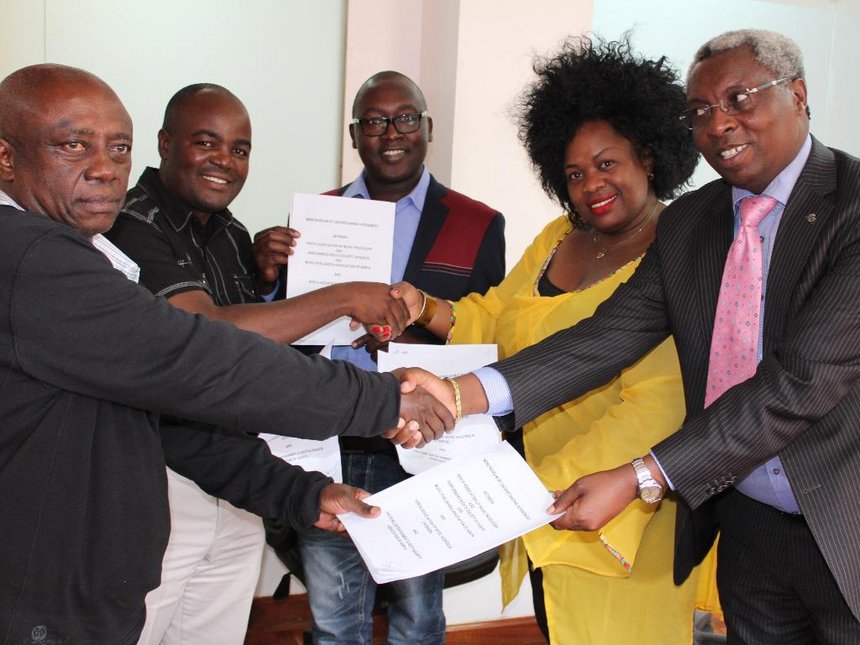Inside the CMO – PERAK – KAHC Tariff for Hotels, Bars and Restaurants: Part 1
- Victor Nzomo |
- August 1, 2017 |
- CIPIT Insights,
- Copyright

The Copyright Act of 2001 is an Act of Parliament to make provision for copyright in literary, musical and artistic works, audio-visual works, sound recordings, broadcasts. The Act also establishes Kenya Copyright Board (KECOBO), a state corporation under the Office of the Attorney General and Department of Justice (AG). Principally the Act empowers KECOBO to license and supervise the activities of collecting societies, also known as Collective Management Organisations (CMOs). Anybody who wants to use music (subject to copyright) in public needs a licence to do so. The licence fee, or royalty, depends on the type of use. Royalty rates are set in tariffs, which are determined by CMOs.
The Pubs and Restaurants Association of Kenya (PERAK), the Kenya Association of Hotel Keepers and Caterers (KAHC) among other public performance or communication to the public rights licensees have actively engaged both the CMOs and KECOBO regarding tariff setting and licensing conditions. Their key message: the setting and approval of the tariffs for bars, restaurants and hotels must be consultative and cater for the interests of all parties involved. In the case of Republic v Kenya Association of Music Producers (KAMP) & 3 others Ex- Parte Pubs, Entertainment and Restaurants Association of Kenya (PERAK) [2014] eKLR, the High Court ordered the State including KECOBO to set up the Competent Authority established under the Copyright Act (a quasi-judicial body akin to a Copyright Tribunal) to hear and determine the dispute between PERAK and two related rights CMOs namely Performers Rights Society of Kenya (PRISK) and Kenya Association of Music Producers (KAMP) over the tariffs for communication to the public. PERAK had filed a petition for judicial review alleging that the CMOs were arbitrarily imposing tariffs and collecting exhorbitant license fees from business owners who were members of PERAK. The umbrella body for owners and managers of restaurants, pubs and entertainment venues claimed that the CMOs licensing conditions were unfair and that the collecting societies had resorted to harassment and intimidation as well as confiscation of sound equipment and other property belonging to the businesses.
Similarly, in the case of Republic v KAMP & Anor Ex Parte Nakuru Municipality Pubs, Bars, Restaurants and Hotel Owners Association 2015 [eKLR], the business owners argued that the proposed levies and licenses were never communicated to their association or any of their members and that as they were not notified, or invited to participate in their formulation and approval, the CMOs had failed in their duty to communicate the passage and approval of the levies to them as such the CMOs were in breach of the rules of natural justice by withholding information that would affect them economically and financially and as well as in breach of their constitutional right of access to information.
Both these cases are significant in that they demonstrate some of the genuine concerns that users have raised regarding the function of the collective rights management system in Kenya. However the use of litigation as a strategic tool to push for reforms ought to be a measure of last resort when all negotiations and attempts at dialogue have failed. In the next post, we examine the genesis of how PERAK and KAHC deftly engaged KECOBO to mediate a resolution with the CMOs on the development of a tariff for hotels, bars and restaurants.
